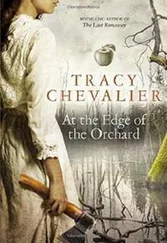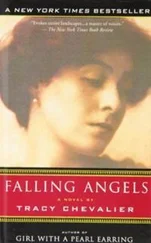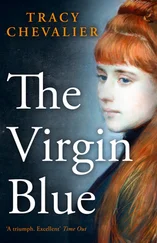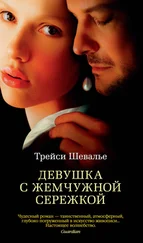‘You did it. You found them!’
‘Yes. With a lot of help and luck. But yes.’ I couldn't help noticing that he didn't inspect the Bible as closely and lovingly as Jean-Paul had. The thought made my stomach knot with guilt: these comparisons were completely unfair. No more of this, I thought sternly. No more of this with Jean-Paul. That's it.
‘You know this is worth a lot of money,’ Rick said. ‘Are you sure he gave it to you? Did you ask for a receipt?’
I stared at him, incredulous. ‘No, I didn't ask for a receipt! Do you ask for a receipt every time I give you a present?’
‘C'mon, Ella, I'm just trying to be helpful. You don't want him changing his mind and asking for it back. You get it in writing, you won't have that problem. Now, we should put this in a safe deposit box. Probably in Toulouse. I doubt the bank here has one.’
‘I'm not putting it in a safe deposit box! I'm keeping it here, with me!’ I glared at him. Then it happened: like one of those one-cell creatures under the microscope that for no apparent reason suddenly divides into two, I felt us pulling apart into distinct entities with separate perspectives. It was strange: I hadn't realized how together we'd been until we were far apart.
Rick didn't seem to notice the change. I stared at him until he frowned. ‘What's the matter?’ he asked.
‘I – well, I'm not going to put it in a safe deposit box, that's for sure. It's too valuable for that.’ I picked it up and hugged it to me.
To my relief Rick had to go on his German trip the next day. I was so shaken by the new space between us that I needed some time alone. He kissed me goodbye, oblivious to my inner turmoil, and I wondered if I was as blind to his internal life as he seemed to be to mine.
It was a Wednesday and I badly wanted to go over to the café by the river to see Jean-Paul. Head won over heart: I knew it would be better to leave things awhile. I deliberately waited until I knew he'd be safely buried in his paper at the café before I left the house on my daily rounds. A chance encounter on the street around so many people fascinated with our every move was distinctly unappealing. I had no intention of playing out this drama in front of the town. As I approached the central square Jean-Paul's depiction of Lisle and what it thought of me came flooding back; it was almost enough to make me run back to the privacy of my house, and even use the shutters.
I made myself keep going. When I bought the Herald Tribune and Le Monde , the woman who sold them was perfectly pleasant, giving me no strange looks, even remarking on the weather. She didn't seem to be thinking about my washing machine, shutters or sleeveless dresses.
The real test was Madame. I headed resolutely to the boulangerie. ‘Bonjour, Madame! ’ I sang out as I entered. She was in the middle of talking to someone and frowned slightly. I glanced at her audience and found myself face to face with Jean-Paul. He hid his surprise, but not quickly enough for Madame, who eyed us with triumphant disgust and glee.
Oh, for Christ's sake, I thought, enough's enough. ‘ Bonjour, Monsieur ,’ I said in a bright voice.
‘ Bonjour, Madame ,’ he replied. Though his face didn't move his voice sounded as if he had raised his eyebrows.
I turned to Madame. ‘Madame, I would like twenty of your quiches, please. You know, I adore them. I eat them every day, breakfast, lunch, dinner.’
‘ Twenty quiches,’ she repeated, leaving her mouth ajar.
‘Yes, please.’
Madame snapped her mouth shut, pressing her lips together so hard they disappeared, and, eyes on me, reached behind her for a paper bag. I heard Jean-Paul quietly clear his throat. When Madame bent down to shovel the quiches in the bag I glanced at him. He was staring into the corner at a display of sugared almonds. His mouth had tightened and he was rubbing his jaw with his index finger and thumb. I looked back at Madame and smiled. She straightened up from the glass case and twisted the corners of the bag shut. ‘There are only fifteen,’ she muttered, glaring at me.
‘Oh, that's too bad. I'll have to go to the pâtisserie to see if they have any.’ I suspected Madame wouldn't like the pâtisserie ; what they sold would seem too frivolous to her, a serious bread woman. I was right: her eyes widened and she sucked in her breath, shook her head, and made a rude noise. ‘They don't have quiches!’ she exclaimed. ‘I'm the only one who makes quiches in Lisle-sur-Tarn!’
‘Ah,’ I replied. ‘Well, maybe at the Intermarché.’
At this Jean-Paul made a garbled sound and Madame nearly dropped the bag of quiches. I'd committed the sin of mentioning her arch rival and the worst threat to her business: the supermarket on the edge of town, with no history, no dignity, no finesse. Kind of like me. I smiled. ‘What do I owe you?’ I asked.
Madame didn't answer for a moment; she looked like she needed to sit down. Jean-Paul took this opportunity to murmur ‘ Au revoir, Mesdames’ and slip away.
The moment he was gone I lost interest in struggling with her. When she demanded what seemed an outrageous sum, I handed it over meekly. It was worth it.
Outside Jean-Paul fell in step with me.
‘You are very wicked, Ella Tournier,’ he murmured in French.
‘Would you like some of these quiches?’ We laughed.
‘I thought we mustn't see each other in public. This -’ I waved my hand around the square – ‘is very public.’
‘Ah, but I have a professional reason to talk to you. Tell me, have you looked carefully at your Bible?’
‘Not yet. Look, don't you ever stop? Don't you sleep?’
He smiled. ‘I have never needed much sleep. Bring the Bible over to the library tomorrow. I've discovered some interesting things about your family.’
The Bible was an odd size, long and unexpectedly narrow. But it wasn't too heavy and it felt comfortable in my arms. The cover was made of worn, cracked leather, rubbed dull and soft and mottled in shades of chestnut brown. The leather was cracked and wrinkled, and an insect had bored tiny holes in several places. The back cover was blackened and burned half away, but on the front an intricate design of lines and leaves and dots stamped in gold was intact. Gold flowers had been stamped down the spine, and a modified pattern of the design had been tapped with a hammer and a pin into the sides of the pages.
I turned to the beginning of Genesis: ‘ Diev crea av commencement le ciel & la terre .’ The text was in two columns, the typeface clear, and though the spelling was peculiar I could understand the French – what was left of it. The back of the book had been burned away, the middle pages scorched beyond recognition.
At Crazy Joe's Bar Mathilde and Monsieur Jourdain had a long discussion about the Bible's origins, Jean-Paul chipping in now and then. I could only partly follow what they said because Monsieur Jourdain's accent was so hard to decipher and Mathilde's delivery so fast. It was always harder to follow a conversation in French when people weren't speaking directly to me. From what I could gather they agreed that it had probably been published in Geneva, and possibly translated by someone named Lefèvre d'Etaples. Monsieur Jourdain was particularly emphatic about the name.
‘Who was he?’ I asked hesitantly.
Monsieur Jourdain began to chuckle. ‘La Rousse wants to know who Lefèvre was,’ he kept repeating, shaking his head. By then he'd downed three highballs. I nodded patiently, letting him have his little joke; the martinis had made me more tolerant about being teased.
Eventually he explained that Lefèvre d'Etaples had been the first to translate the Bible from Latin into the French vernacular so that people other than priests could read it. ‘That was the beginning,’ he declared. ‘That was the beginning of everything. The world split apart!’ With that pronouncement he pitched forward on his stool and landed halfway across the bar.
Читать дальше
Конец ознакомительного отрывка
Купить книгу
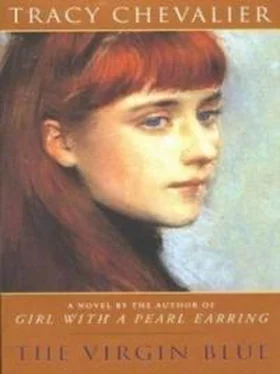
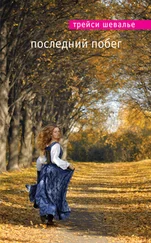
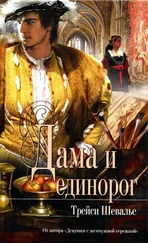

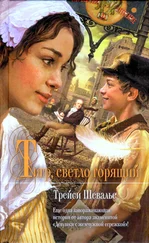

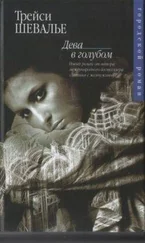
![Трейси Шевалье - Тонкая нить [Литрес]](/books/386177/trejsi-shevale-tonkaya-nit-litres-thumb.webp)
